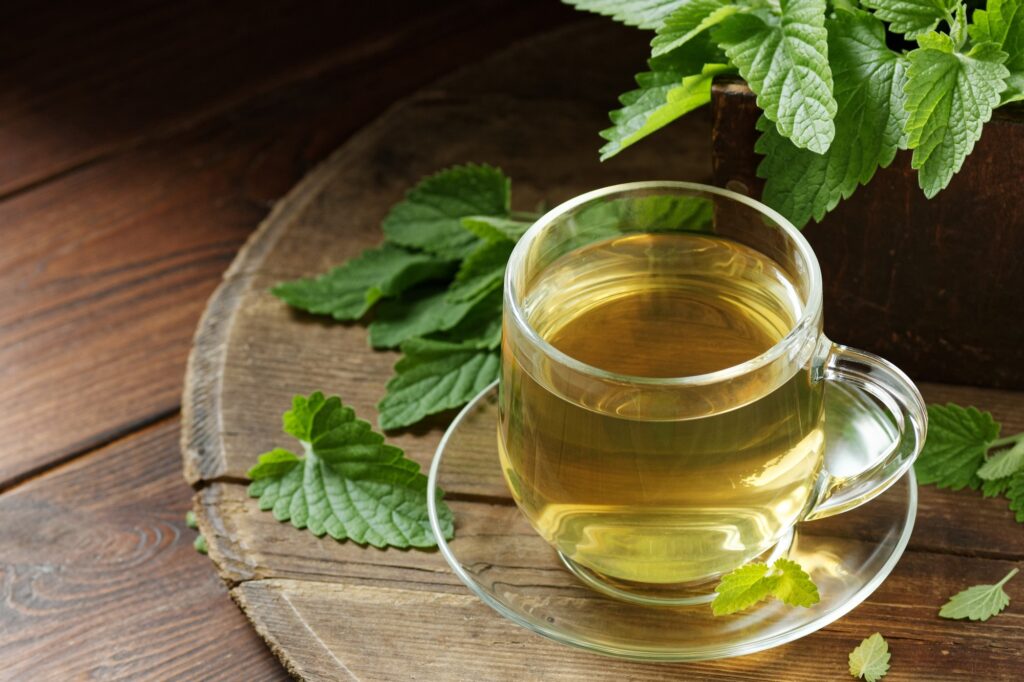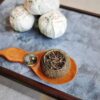
Lemon balm, a member of the mint family, has been used for centuries as a natural remedy for a variety of ailments. Its soothing aroma and calming properties have made it a popular choice for tea enthusiasts and health-conscious individuals alike. In this comprehensive guide, we will explore the fascinating world of lemon balm tea, delving into its history, health benefits, and practical applications.
What is Lemon Balm Tea?
Lemon balm tea is an herbal infusion made from the leaves of the Melissa officinalis plant, commonly known as lemon balm. This fragrant herb is native to the Mediterranean region and has been cultivated for its medicinal and culinary uses for thousands of years. When brewed, lemon balm tea produces a bright, lemony flavor with subtle floral notes, making it a refreshing and versatile beverage.
History and Origins of Lemon Balm Tea
The use of lemon balm for medicinal purposes can be traced back to ancient civilizations. In ancient Greece, lemon balm was valued for its calming and soothing properties, and it was used to treat a variety of ailments, including anxiety, insomnia, and digestive issues. During the Middle Ages, lemon balm was widely cultivated in monastery gardens and used in traditional herbal remedies.
Over the centuries, the popularity of lemon balm tea has spread throughout the world, with its therapeutic benefits being recognized by various cultures and medical traditions. Today, lemon balm tea is enjoyed globally for its versatile applications and its potential to support overall health and well-being.
Health Benefits of Lemon Balm Tea
- Stress and Anxiety Relief: Lemon balm tea is renowned for its ability to promote relaxation and reduce feelings of stress and anxiety. Studies have shown that the compounds in lemon balm, such as rosmarinic acid, can have a calming effect on the central nervous system, helping to alleviate symptoms of anxiety and improve mood.
- Improved Sleep Quality: Lemon balm tea has been used as a natural sleep aid for centuries. The calming properties of the herb can help to induce a state of relaxation, making it easier to fall asleep and stay asleep throughout the night. Lemon balm tea may be particularly beneficial for individuals struggling with insomnia or sleep disturbances.
- Digestive Support: Lemon balm tea is often used to soothe gastrointestinal issues, such as bloating, gas, and indigestion. The antispasmodic properties of the herb can help to relax the muscles in the digestive tract, reducing discomfort and promoting better digestion.
- Enhanced Cognitive Function: Emerging research suggests that lemon balm tea may have the potential to improve cognitive function, including memory, concentration, and focus. The herb’s antioxidant and neuroprotective properties may contribute to these cognitive benefits.
- Immune System Support: Lemon balm is rich in antioxidants and has been shown to possess anti-inflammatory properties. Consuming lemon balm tea may help to support the immune system and reduce the risk of certain infections and illnesses.
- Potential Antimicrobial and Antiviral Effects: Some studies have indicated that lemon balm may have antimicrobial and antiviral properties, which could make it useful in the prevention and management of certain bacterial and viral infections.
How to Make Lemon Balm Tea
Making lemon balm tea is a simple and straightforward process. Here’s a step-by-step guide:
- Gather the Ingredients: You’ll need fresh or dried lemon balm leaves, hot water, and any desired sweeteners or additions (such as honey, lemon slices, or mint leaves).
- Measure the Lemon Balm: For a single serving, use approximately 1-2 teaspoons of fresh or dried lemon balm leaves.
- Steep the Tea: Bring fresh, clean water to a boil. Pour the hot water over the lemon balm leaves and let the tea steep for 5-7 minutes, allowing the flavors to infuse.
- Strain and Serve: Use a fine-mesh strainer or tea infuser to remove the lemon balm leaves from the tea. Pour the lemon balm tea into your favorite mug or cup, and add any desired sweeteners or garnishes.
- Enjoy: Sip and savor the refreshing, calming flavor of your homemade lemon balm tea.
For a stronger or more concentrated tea, you can increase the amount of lemon balm leaves used or steep the tea for a longer duration. Experiment with different steeping times and leaf-to-water ratios to find your perfect cup of lemon balm tea.
Lemon Balm Tea Recipes
While lemon balm tea can be enjoyed on its own, there are a variety of recipes and flavor combinations that can enhance the experience. Here are a few delightful lemon balm tea recipes to try:
- Lemon Balm and Honey Tea: Steep lemon balm leaves in hot water, then stir in a spoonful of raw honey to create a soothing, honey-sweetened tea.
- Lemon Balm and Ginger Tea: Combine lemon balm leaves with freshly grated ginger for a warming, invigorating tea that can aid digestion.
- Lemon Balm and Chamomile Tea: Blend lemon balm with chamomile flowers for a calming, sleep-promoting tea.
- Lemon Balm and Mint Tea: Mix lemon balm with fresh mint leaves for a refreshing and aromatic tea experience.
- Lemon Balm and Citrus Tea: Add slices of lemon, orange, or lime to your lemon balm tea for a bright, zesty flavor profile.
Experiment with different herb and fruit combinations to find your favorite lemon balm tea recipe.
Lemon Balm Tea for Relaxation and Stress Relief
One of the primary uses of lemon balm tea is for its calming and stress-relieving properties. The herb’s natural compounds, such as rosmarinic acid and citronellal, have been shown to have a soothing effect on the central nervous system, helping to reduce feelings of anxiety and promote a sense of relaxation.
Drinking a warm cup of lemon balm tea can be a simple yet effective way to unwind after a long day or to manage stressful situations. The act of brewing and sipping the tea can also have a meditative quality, further enhancing its stress-relieving benefits.
Lemon Balm Tea for Sleep and Insomnia
Lemon balm tea has long been used as a natural sleep aid, thanks to its ability to induce a state of relaxation and calmness. The herb’s mild sedative effects can help to ease the mind and body, making it easier to fall asleep and stay asleep throughout the night.
For individuals struggling with insomnia or sleep disturbances, incorporating lemon balm tea into their evening routine can be a gentle and effective way to improve sleep quality. The tea’s calming properties may also be beneficial for those who experience anxiety or stress-related sleep issues.
Lemon Balm Tea for Digestion and Stomach Issues
Lemon balm tea is often used to soothe a variety of gastrointestinal issues, such as bloating, gas, and indigestion. The herb’s antispasmodic properties can help to relax the muscles in the digestive tract, reducing discomfort and promoting better digestion.
Additionally, lemon balm’s anti-inflammatory and antimicrobial properties may make it useful in the management of certain stomach-related conditions, such as peptic ulcers and irritable bowel syndrome (IBS).
Lemon Balm Tea and Its Effects on Mental Health
Emerging research suggests that lemon balm tea may have the potential to positively impact mental health. The herb’s calming and cognitive-enhancing properties may make it beneficial for individuals dealing with conditions like anxiety, depression, and cognitive decline.
Studies have indicated that lemon balm may help to improve mood, enhance focus and concentration, and even support memory function. The antioxidant and neuroprotective compounds in the herb may contribute to these cognitive benefits, making lemon balm tea a promising natural remedy for mental well-being.
Lemon Balm Tea and Its Potential Side Effects
Lemon balm tea is generally considered safe for consumption, with few reported side effects. However, as with any herbal remedy, it’s essential to be aware of potential interactions and to consult with a healthcare professional, especially if you have any underlying medical conditions or are taking medication.
Some potential side effects of lemon balm tea may include:
- Mild gastrointestinal issues, such as nausea or abdominal discomfort, in some individuals
- Drowsiness or sedation, particularly when consumed in large quantities or in combination with other sedative herbs or medications
- Allergic reactions, such as skin rashes or breathing difficulties, in people with sensitivities to the lemon balm plant
It’s important to start with small servings of lemon balm tea and monitor your body’s response. If you experience any adverse reactions, discontinue use and consult a healthcare professional.
Where to Buy Lemon Balm Tea
Lemon balm tea can be found in a variety of retail and online stores, catering to the growing demand for natural and herbal beverages. Here are some common places to purchase lemon balm tea:
- Local health food stores or specialty tea shops
- Grocery stores with a dedicated tea or herbal section
- Online tea retailers and specialty tea websites
- Farmers’ markets or local herb growers and producers
When purchasing lemon balm tea, be sure to look for high-quality, organic, and ethically sourced products. Avoid any tea blends that contain artificial additives or flavorings, as these may diminish the natural benefits of the lemon balm.

Lemon balm tea is a versatile and captivating herbal beverage with a rich history and a wealth of potential health benefits. From its calming effects on the mind and body to its digestive and cognitive-enhancing properties, lemon balm tea offers a natural and holistic approach to wellness.
Whether you’re seeking relaxation, improved sleep, or support for your overall well-being, incorporating lemon balm tea into your daily routine can be a simple and rewarding step towards a healthier, more balanced lifestyle. Explore the wonders of this remarkable herb and discover the transformative power of a warm, soothing cup of lemon balm tea.






